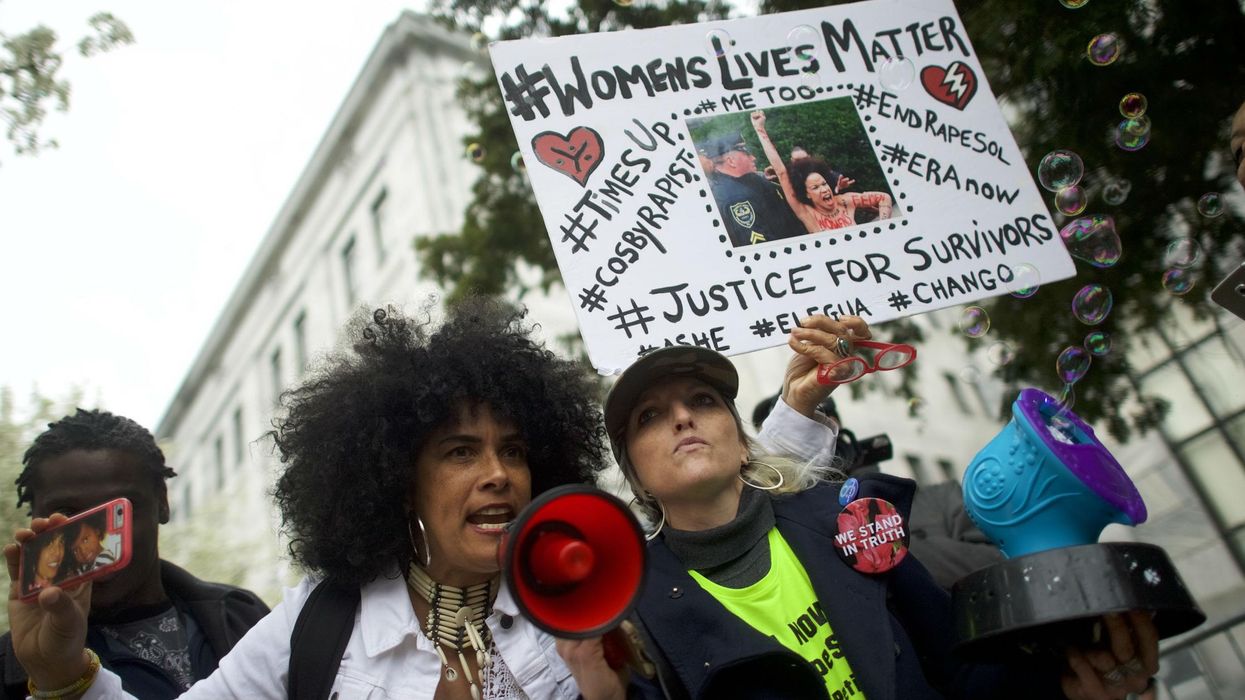News
Jake Hall
May 03, 2018

Photo: Mark Makela / Getty Images
"The person you see now is just a tiny fraction of who I once was. I am a sad, anxious, broken piece of a once whole person."
These are the powerful words of an unnamed - for legal reasons - rape victim, who recently delivered a devastating speech recounting the trauma 31-year-old Nathan Teece put her through when he raped her at a party in 2016. Teece was also in attendance as she read the speech aloud in Australia's Queensland Court.
The court heard how he not only pinned her down while she slept, forced himself inside her and stifled her cries with his hands, but reportedly did so brazenly, as though there was no fault to be found in his actions.
Every piece of my being wishes so desperately that I could have pulled or pushed my arm out, or somehow kicked you.
At least once, one ounce of retaliation, but I couldn't. I wish I could have left a mark on your body.
In the lengthy, often poetic statement, she speaks of the recurring anger which bubbled inside her during the days following her assault. The victim also admits being lulled into a false sense of security by the nearby presence of her husband and friends. She then goes on to recount her experiences of walking, humiliated, through a hospital to the Sexual Assault Victims Unit.
Her feelings of embarrassment aren't unique.
Just yesterday, the BBC published a video interview with Linda Armstrong, the mother of Lindsay Armstrong, a 17-year-old sexual assault victim who committed suicide shortly after testifying in court back in 2002.
Armstrong described the humiliation her daughter felt throughout the rape trial, stating:
[She was] forced to hold up her underwear that she was wearing.
I feel like if we just stopped that sort of thing, that wouldn't have happened, because that was the most hurtful thing that happened to her, holding up her underwear,
Harrowing stories like these contribute to an overwhelming reluctance to actually report rape cases.
2016-2017 research published by the Office of National Statistics shows that 510,000 women and 138,000 men said they had experienced sexual assault over the 12-month period. Five in six - 83 per cent - of these victims did not report their assault to police.
More recent figures show a rise in the number of alleged rapes perpetrated in London - The Independent this year cited official statistics showing that rates had risen by almost 20 per cent. Sir Craig Mackey, deputy commissioner of the Metropolitan Police, argued that these statistics could not be attributed solely to a rise in police confidence - in other words, a greater willingness among victims to formally report sexual assault.
Of course that plays a part, and faith in the process, but there is something going on with sexual offending in London that we don't fully understand.
We see the end of it but don't understand the causes.
But these reports don't guarantee convictions - far from it.
According to the Crown Prosecution Service, 41,150 rapes were reported to police in England and Wales over a 12-month period from 2016 to 2017.
Of these, 5,190 went to court and 2,991 results in a conviction.
This staggeringly low conviction rate has been attributed to limited legal definitions of sexual assault and rape in UK law.
Crucially, conversations like these are not just legal and political - a wider cultural conversation has been ongoing ever since The New York Times published its explosive Harvey Weinstein exposé late last year. The definition of consent has been challenged on numerous occasions, but the courage of the aforementioned assault victim and her heartbreaking speech concisely highlights the reason these discussions are still crucial.
More: A devastating explanation of why women can appear 'rude' in public
Top 100
The Conversation (0)













